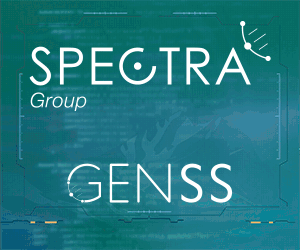Today the defence manufacturer Galvion is a global brand, with factories and offices across four countries in North America and Europe, writes Bob Morrison.
~
When covering defence & security expositions and exhibitions, such as the recent IDEX in Abu Dhabi and Enforce Tac in Nuremberg, I always drop in on our sponsors’ / advertisers’ stands to catch up on latest developments, often also taking reference photos of specialist kit in case needed for illustrating media releases and product announcements. New England and Montreal based Galvion, which also has facilities on this side of ‘The Pond’ in Bristol and Gdansk, was present at both recent shows.
Established in its present format in 2019, Galvion grew out of the Revision Military eyepro (eye protection) business, which originated early in the millennium and then expanded majorly into the ballistic helmet market in mid-2012 with the purchase of the Vermont-based MSA manufacturing facility for US Army Advanced Combat Helmets before also successfully venturing into the military mobile power management systems field in 2014. Since the sale of the eye protection side of the business five and a half years ago, along with the Revision Military name, and the creation of the new Galvion brand, the company’s growth across both the protective head systems and power & data systems sectors has been at times quite hard to keep up with, prompting me to ask Chairman Jonathan Blanshay to tell us more:-
Bob: “You launched the Galvion brand in 2019 following the sale of Revision Military. Since then, it’s been an impressive journey of growth, can you summarise that for me?
Jonathan: I would say the major driver of our growth has been the focus on our head systems business but supported by power and data. Since 2019 we have seen approximately 30% year-on-year annual organic growth in the head systems area with major contract wins across the globe. At the same time, expanding our offering to include integrated accessories plus new product launches in torso systems, power management and batteries. We’re now a global leader in these capability areas.
Bob: What do you think have been the key strategic decisions made in that time?
Jonathan: Without a doubt, investing in both people and in R&D has been key to our success and our exponential growth. We have always been willing to lean forward in that sense – ‘think big’ and ‘invest big’. Throughout our history, even in leaner times, we’ve made strategic investment a priority. In the past five years, we’ve spent 10’s of millions of dollars to expand our footprint and capabilities – our US Headquarters in Portsmouth, with its state-of-the-art Warfighter Lab; updates to our existing Montreal and Vermont facilities for R&D and manufacturing excellence; full end-to-end advanced optical coatings centre in Massachusetts; and of course, our new European production hub in Poland. We’re committed to a thoughtful expansion of our global footprint to allow us to service our global customer base from the right places, and build global supply chains to support regional priorities. We’ve now got facilities and networks across four countries, and that puts us, and our customers, in a balanced position when there is turmoil and uncertainty out there.
Bob: Over the years you have made some major investments in different directions along the way, which stand out for you and have you any subsequent regrets?
Jonathan: Certainly, the organic investments we’ve made in our facilities as mentioned above stand out – I think we’re in the ballpark of $30 million invested in the more recent Galvion years. Going a little farther back, there were three major milestone acquisitions from 2010 through 2018 – totalling about $15 million – that were critical in growing our capabilities, all in-line with our overall future-forward vision. Acquisitions of the Vermont helmet business, the Ottawa rechargeable battery business, and the Massachusetts power management business. All three of those saw us buying assets, IPR and expertise, and while all of them had their particular challenges, collectively, they have transformed the organisation.
Bob: Just returning to the final part of that question regarding regrets. Is there anything you wished you hadn’t done on that journey?
Jonathan: Looking back, we could have executed on our regionalisation strategy a little earlier. Building that strong and diverse global supply chain to support our international customer base and global facility footprint is just a necessity for top-tier service. I’m pleased with where we sit now, with regional partners and a production facility in Poland – but would I have liked to be where we are now a couple of years ago? Absolutely.

Bob: The expansions across the various defence technology fields have seen you making some big personnel hires in addition to the core team members I’ve been meeting up with for many years at the expos. Who have been the key people you’ve brought onboard at Galvion and why?
Jonathan: If you’re lucky to be in a growing business and around long enough, there’s a point that I think a lot of Founder/CEOs come to, which is the realisation that you have taken the business as far as you can as its CEO. For future success, it’s critical to hire industry experts to enable the continued growth of the business and to professionalise the senior leadership team. You grow a business from the ground up with a certain type of team, and I am so grateful for those who have played such a crucial role in the past 20 years – some of whom I’m happy to say are still part of the team. But as I said, you get to a certain level, and then you need a different expertise. I would highlight three important additions: Todd Stirtzinger as CEO, Nildeep Patel as COO and Lynn Bollengier as SVP of our Power & Data and Advanced Capabilities. For me, to step back into the Chairman role means we’re no longer a founder-led company with the constraints that can bring. We’re now driven by a professional, long-term defence sector leadership team that has decades of appropriate experience to support our next phase.
Bob: Naturally we try to keep abreast of Galvion media releases but of course we are not always immediately aware of every procurement, not least because sometimes client confidentiality clauses can initially be quite restrictive, so of those you are free to talk about what do you consider to have been your major contract wins?
Jonathan: I think for our head systems business, the NSPA NATO framework contract is huge. We’ve surpassed 200,000 helmets ordered through that contract mechanism, with hundreds of thousands of accessories as well. In addition to NSPA, we have also won six major strategic head system contracts since 2018, covering a wide global reach from North America, across Europe and NATO to the Middle East. On the power and data side, we’ve won a significant number of orders with US DoD, including from the USMC for batteries and power management systems. We’ve also received several contracts from the large traditional defence primes where our power and data systems are supporting their larger air and land platform programmes. Our recently announced relationship with AeroVironment is a great example of this – we’ve made customised UAS battery charging solutions for them – but there are others that we’re not yet able to announce.
Bob: In terms of longevity and business security, have you any contracts in place that help with that? I’m thinking framework contracts and support contracts, but there may be others?
Jonathan: I think firstly the NSPA contract is a great example of a long-term contract for four years plus three one-year extension options, so we see that running for, potentially, seven years and that includes procurement of new head systems and integrated accessories but also through-life support. With individual countries our contracts in the Netherlands, Denmark and Canada are all multi-year and include follow-on order options plus through life support. In UK we’ve been the principal head systems supplier for twelve years now. We are really looking to provide whole-life value for our customers – making sure that we offer upgrade, maintenance and repair options to extend system life. We’re not just a ‘won and done’ business, we have multi-year contracts in place, and we are committed to building long-term relationships with our customers.
Bob: What’s next? Where do you see Galvion heading in the future?
Jonathan: Our primary focus is the continued development of the advanced integrated head system. We’ve always been system integrators – it’s what’s driven our capability growth over the years. We see ourselves as the global leader in this area, bringing new technology and integration in a design-driven, end-user focused way to deliver the next generation head system. It’s not just about protection; it’s about situational awareness and survivability. You can’t simply bolt more and more equipment onto a helmet, each with its own battery, or software or operating system. There has to be a holistic vision, and this is where we thrive.

Bob: Finally, as an instinctive answer, what makes you most proud when you review the Galvion success story?
Jonathan: It always starts with pride in the mission. Our job is to make solutions that serve those who serve us. Whether eyes saved, or heads saved or making a mission more efficient and safer because of a power solution we’ve supplied – that’s something that everyone on our team rallies around and always has. What we do matters. And next I would say – I’m proud of our longevity. We’ve been business for 23 years now, and I believe we’ve grown in 21 out of those years. We have absolutely had ups and downs along the way, but to have gone from a start up with zero experience to now being a place that can compete anywhere in the world, that’s really meaningful to me. And ultimately, that is a reflection of the wider team that have been a part of building each chapter of our success. I’m very proud of that story.
Bob: Thanks Jonathan.

~
























